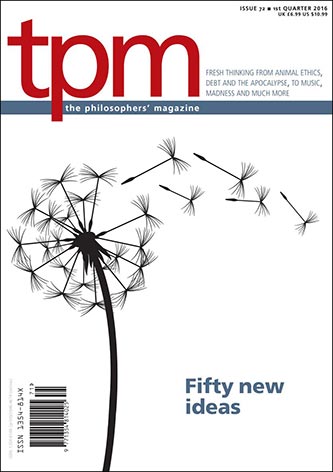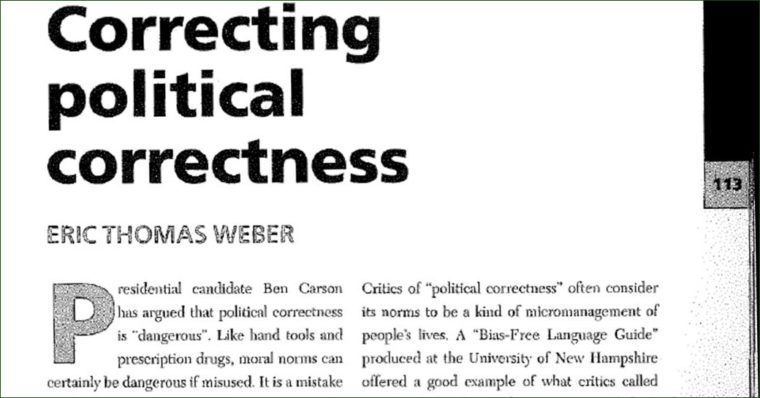Eric Thomas Weber, first published on The Second Breakdown, July 30, 2015.
In July 2015, University of Mississippi graduate, Adebanke Alabi invited me to comment on race and the Church for a series on her blog. The following is my piece, originally published on her page and reposted here with permission.
Preface: I am grateful to Adebanke (Buki) Alabi for calling me to comment on race and Christianity for the readers of her blog, The Second Breakdown: My Thoughts on Jesus and His Church.

 Mississippi is still home to obstinate racism, even while in 2014 Gallup found it to be the most religious state in the United States. The vast majority of the 44 failing school districts’ enrollments in the state are majority- to almost totally made up of African American students. Some districts have been accused of not having desegregated. We have seen symbolic racism at the University of Mississippi, as well as troubling direct confrontations. Some young people planned and executed a racially motivated murder a few years ago in Jackson, MS.
Mississippi is still home to obstinate racism, even while in 2014 Gallup found it to be the most religious state in the United States. The vast majority of the 44 failing school districts’ enrollments in the state are majority- to almost totally made up of African American students. Some districts have been accused of not having desegregated. We have seen symbolic racism at the University of Mississippi, as well as troubling direct confrontations. Some young people planned and executed a racially motivated murder a few years ago in Jackson, MS.
 Despite all of these disturbing cases of racism in Mississippi, many citizens and public officials continue to resist change even to symbols of racism. I have argued that falsely romanticizing heritage does us harm and that symbols, like the Confederate Battle Flag featured in the canton of MS’s state flag, contribute to the perpetuation of racism and injustice. What has gotten very little attention is the tragic inconsistency between the religious beliefs people say that they hold dear and the contradictory behaviors that we see here in Mississippi.
Despite all of these disturbing cases of racism in Mississippi, many citizens and public officials continue to resist change even to symbols of racism. I have argued that falsely romanticizing heritage does us harm and that symbols, like the Confederate Battle Flag featured in the canton of MS’s state flag, contribute to the perpetuation of racism and injustice. What has gotten very little attention is the tragic inconsistency between the religious beliefs people say that they hold dear and the contradictory behaviors that we see here in Mississippi.
 In a passage from the Republic, Plato’s Socrates tells us that leaders must convince their people that we are all born of the earth, children of the same parent – a mother, according to the story. When threats to security arise, if people do not care sufficiently about their neighbors, they will fail to act in others’ defense. Kinship motivates us to take care of our children and our brothers and sisters. People thinking of each other as kin is one of the most important needs for a society’s safety and unity, he argues. He thought the story was a lie, but a necessary one. Christians today do not think it is a lie, and Darwin’s evolutionary theory confirms humanity’s common kinship.
In a passage from the Republic, Plato’s Socrates tells us that leaders must convince their people that we are all born of the earth, children of the same parent – a mother, according to the story. When threats to security arise, if people do not care sufficiently about their neighbors, they will fail to act in others’ defense. Kinship motivates us to take care of our children and our brothers and sisters. People thinking of each other as kin is one of the most important needs for a society’s safety and unity, he argues. He thought the story was a lie, but a necessary one. Christians today do not think it is a lie, and Darwin’s evolutionary theory confirms humanity’s common kinship.
Plato lived about 400 years before Christ. When we look to the Christian religion, we see a related social aim to the kinship that Socrates called for. A basic Christian belief is that human beings are all children of the same parent – in this case, a Father. One might think that the belief that we are all brothers and sisters would motivate Christians to treat others accordingly.
People are very good at finding ways around what they ought to do, however. Some people divide humanity into categories of those who are fallen and those who are elect or saved. If there are children of God in one community, what do we call people from another community or belief system? Galatians 3:26 explains that people are all children of God in their shared faith in Christ. If that is true, does that mean that nonbelievers or those who profess different faiths are not children of God? That is not logically necessary: “All things red have color” doesn’t imply that other things don’t also have color.
 Many Christians treat others in ways that are not neighborly, even in deeply religious places. The tragedy of this fact is that people in Mississippi share many religious beliefs – that we are all children of the same Father. In their faith in Christ, Scripture says, they should all see each other as children of God.
Many Christians treat others in ways that are not neighborly, even in deeply religious places. The tragedy of this fact is that people in Mississippi share many religious beliefs – that we are all children of the same Father. In their faith in Christ, Scripture says, they should all see each other as children of God.
For many, the core of the Christian religion can be distilled, as Jesus is said to have done in Matthew 22:35-40, Mark 12:28-31, and Luke 10:25-28, into the Greatest Commandment, which has two parts. In addition to loving God, the first element, which people proclaim in word so commonly, Jesus calls for loving our neighbors as we love ourselves. This second element is far less often extolled in word, and evidence in deeds illustrates blatant defiance of the commandment.
 It is time to call people out on this gross contradiction. How in a place like Mississippi people can resist symbolic change, let alone progress in deeds, even with respect to a symbol of the state’s defense of slavery, while claiming to be Christians, is deeply distressing. Some public figures recognize this and have courageously called for progress. It is time others who profess their faith own up to what it means to love one’s neighbor as oneself.
It is time to call people out on this gross contradiction. How in a place like Mississippi people can resist symbolic change, let alone progress in deeds, even with respect to a symbol of the state’s defense of slavery, while claiming to be Christians, is deeply distressing. Some public figures recognize this and have courageously called for progress. It is time others who profess their faith own up to what it means to love one’s neighbor as oneself.
 Dr. Eric Thomas Weber is associate professor of Public Policy Leadership at the University of Mississippi and author of four books, including Uniting Mississippi: Democracy and Leadership in the South (forthcoming in September 2015). He is representing only his own point of view. Follow him on Facebook and on Twitter @erictweber.
Dr. Eric Thomas Weber is associate professor of Public Policy Leadership at the University of Mississippi and author of four books, including Uniting Mississippi: Democracy and Leadership in the South (forthcoming in September 2015). He is representing only his own point of view. Follow him on Facebook and on Twitter @erictweber.
 This piece is a short, op-ed snippet of the larger project I’m working on, called A Culture of Justice. It’s an example that shows clearly how and why culture matters for policy, such as in trademark registration, free speech, and the cultural responsibilities of leadership and symbolism. Check it out.
This piece is a short, op-ed snippet of the larger project I’m working on, called A Culture of Justice. It’s an example that shows clearly how and why culture matters for policy, such as in trademark registration, free speech, and the cultural responsibilities of leadership and symbolism. Check it out.







